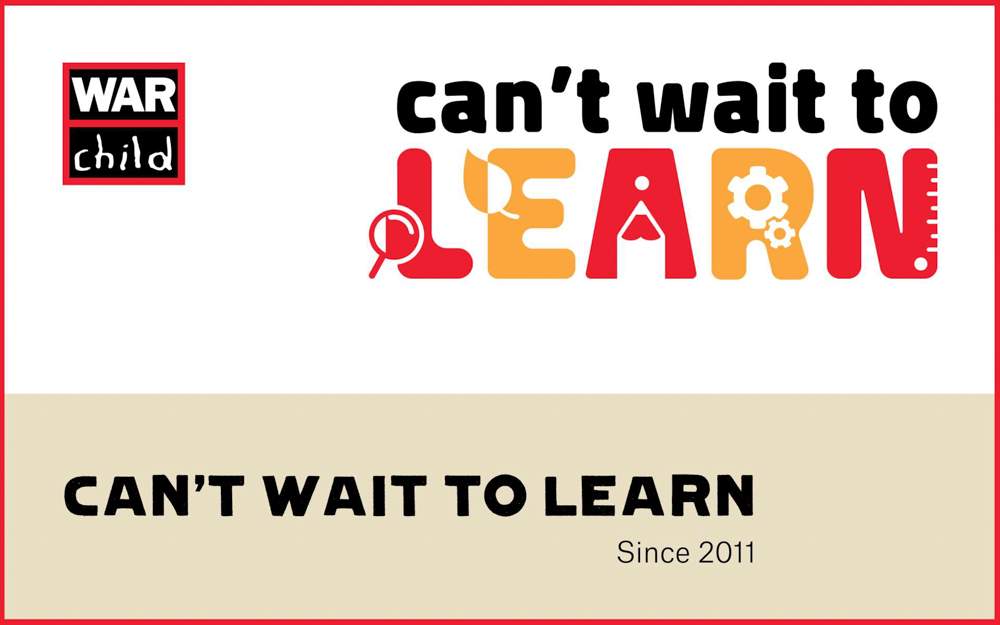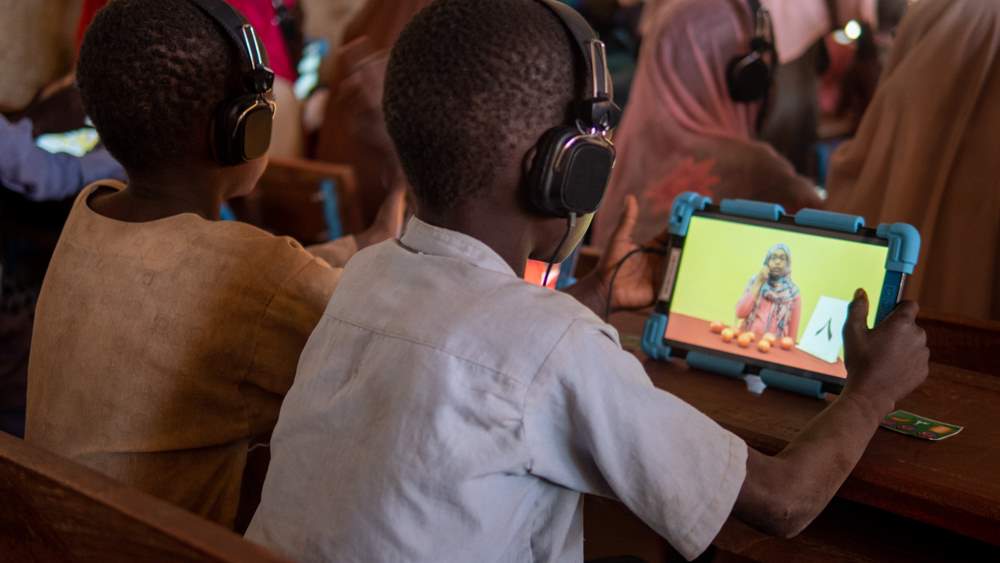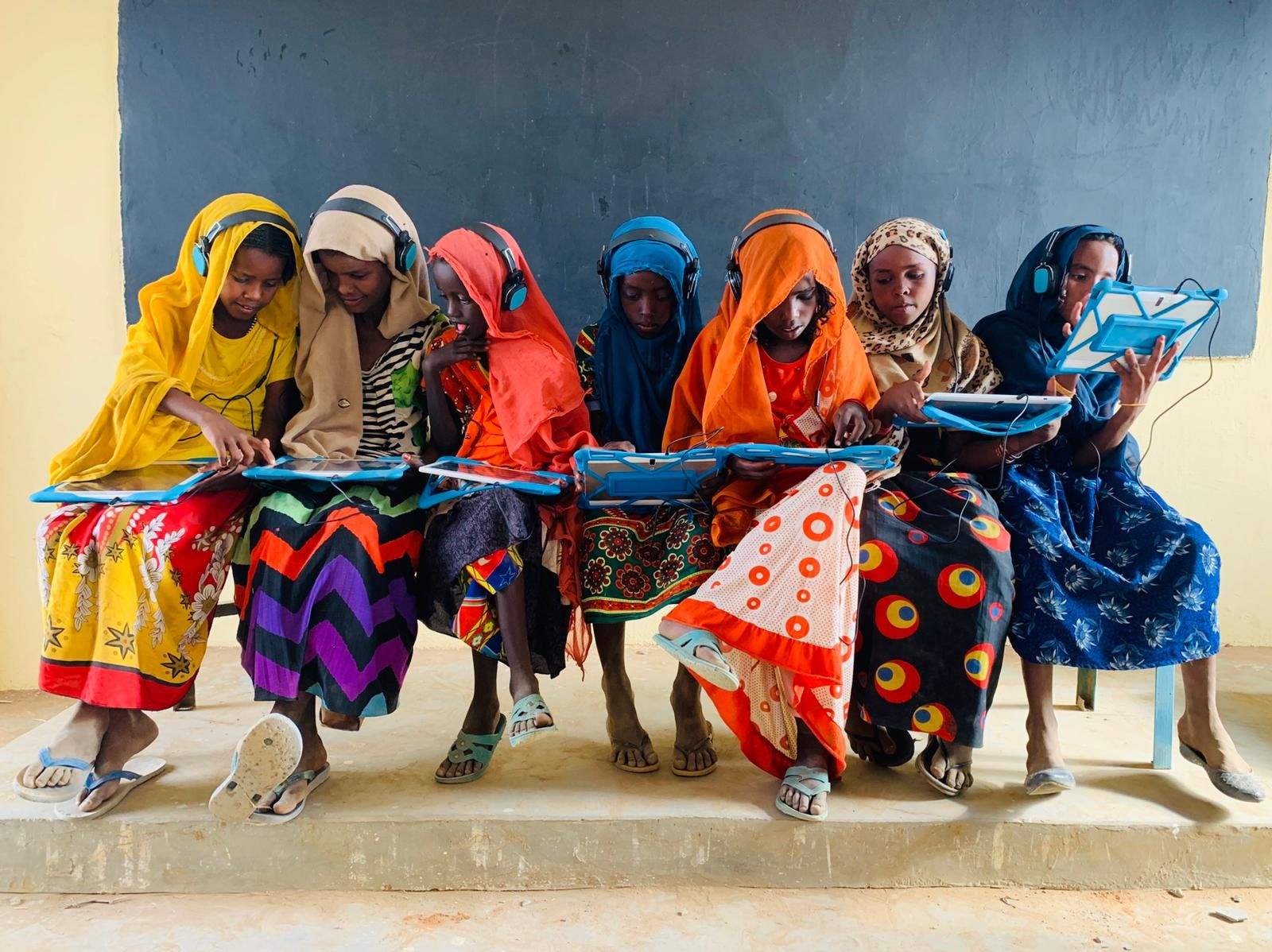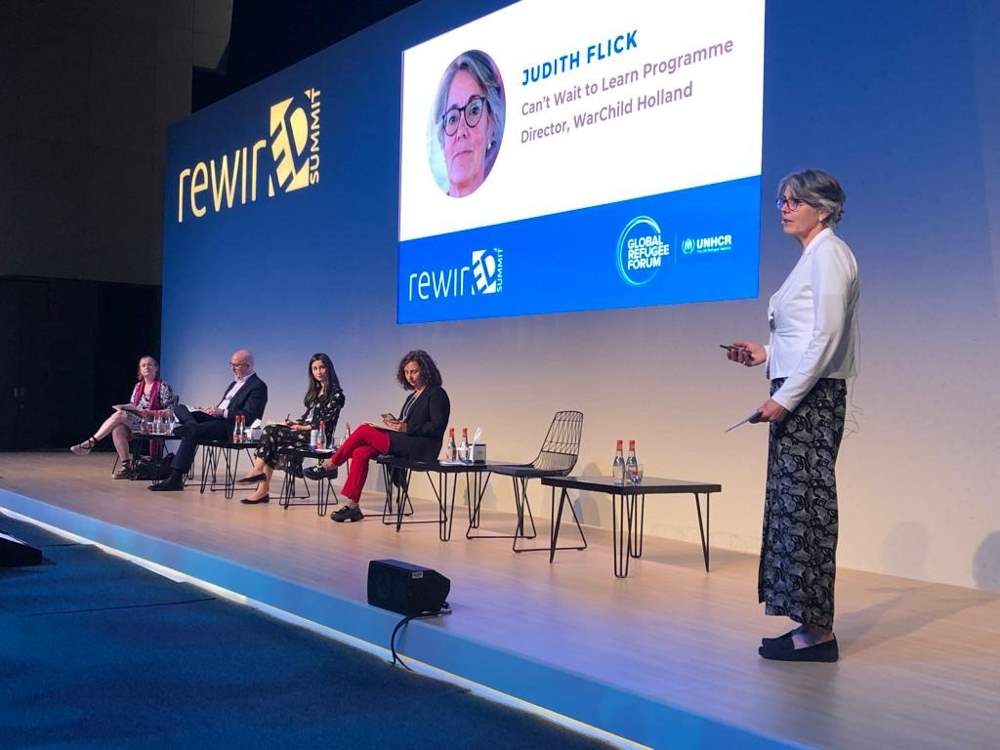Can’t Wait to Learn

-
Child participants: 24,591*
-
War Child teachers and facilitators: 530
-
Countries: Six
-
Global partner organisations: Nine
One in six of the world’s children - 452 million - live in countries affected by conflict. Of these children, 75 million children are in desperate need of educational support. Those who can access formal education often do not progress due to high pupil-teacher ratios and poorly trained teachers. In 2021, COVID-19 saw schools for more than 168 million children close their doors for almost a full year. Globally, this growing education gap is fueling poverty, unemployment, exploitation and instability.
Knowing that education is the starting point on the journey to a better life, our Can’t Wait to Learn programme made a significant contribution to closing this gap. By the close of the year, this award-winning EdTech innovation had provided 24,591 children with foundational numeracy and math skills.

Embracing the Shift to Distance Learning
The beauty of the programme is that it was already well built for the sector-wide shift towards online education. Furthermore, its grounding in evidence ensured that adapted versions could be rolled out fast while maintaining quality.
In refugee camps and host communities in Uganda , where households with internet access are few, our adapted Can’t Wait to Learn@Home programme saw 10,111 continue their learning journey remotely. Our team of community facilitators overcame multiple access barriers including extended lockdown and halts to public transport to not only deliver charged tablets to children’s doorsteps, but also provide additional psychosocial support and learning guidance through home visits and print manuals.
In Lebanon, a similar approach warranted strong outcomes. The team reached 11,651 with home and community-based modalities. At the height of lockdown, children received support and instructions via WhatsApp on their parents’ mobile phones. Indirectly, this also reduced tensions at home by involving the whole family in the learning process.
Thanks to the solidification of these new modalities, we saw a remarkable increase in the number of children taking part in the programme - almost doubling our reach in comparison to 2020. Learn more here.
Maintaining Quality
While the year saw many tech-driven innovations emerge, little was known about how effective they were in practice. War Child - together with UNHCR, Porticus, NYU Global TIES for Children and Relief Application - developed a tool to get answers . The consortium successfully completed the first phase development of the Gamified Learning Measurement Tool (GLMT) in the Summer, drawing upon Can’t Wait to Learn’s specific expertise in educational gaming design.
Scaling Up to Reach More Children
Can’t Wait to Learn is one of the evidence-based methods which War Child is scaling. The launch of our Scaling Strategy in the first quarter of the year generated valuable feedback from key partners including mEducation and Save the Children. This was used to carry out a more detailed evaluation of our potential reach and costs-at-scale, resulting in an associated scaling plan based on War Child’s Theory of Change .
Funds from several key grants and unrestricted funding sources allowed us to develop quality-assurance tools like the GLMT alongside several math games. This bolstered our adherence to the highest humanitarian standards as well as renewed demands from national ministries of education.

Through our strategic plan, several funding proposals were successfully submitted, and partnerships forged with World Vision, Mercy Corps, NetHope, UNHCR, NYU TIES and others to continue implementation in future years. The expansion of the programme to South Sudan reflects these efforts. With the support of regional trainers from our Uganda team and co-created with South Sudanese refugees, Can’t Wait to Learn was piloted in three schools in the Malakal region.
In 2021, the programme was active in six countries: Chad, Jordan, Lebanon, South Sudan, Sudan and Uganda.
Making Our Method Known
The year also saw us gain exposure at several high-level global education events.
The mEducation Alliance - the USAID-run platform behind the September symposium - is focused on improving the effectiveness of EdTech initiatives globally. Can’t Wait to Learn was invited to present our Curriculum Content Planning Framework at the 3-day conference. In short, the framework provides upfront insights into learning objectives and different teaching methods - even before the game is developed.

Our Programme Director Judith Flick presented multiple pitches to key stakeholders at the annual ReWired Summit. With the option to join online or at the in-person Dubai event, everyone from Audrey Azoulay, the Director-General of UNESCO and Gordon Brown, Former UK Prime Minister and United Nations Special Envoy for Global Education were in attendance.
Among the achievements was the awarding of $530,000 in seed funding from summit hosts and philanthropic giant Dubai Cares. The funds will facilitate a partnership experiment with the EdTech Consortium - testing a collective action framework for youth on the move.
- * Out of the 24,591 child participants, 2,054 were reached directly while 22,537 were reached through country offices and partner organisations in Chad and Sudan.
